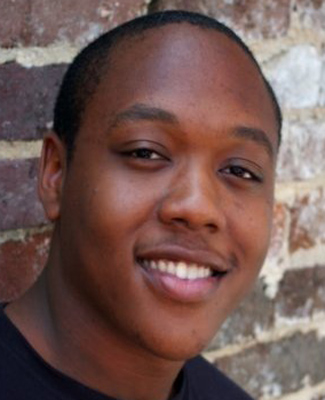 When I enrolled at the University, I was warned about the divide between greek and non-greek, the Machine, the elitism, the ever-present but subtle racism, etc. that held a static presence on campus. Did I care? Not at all. I was a cocky incoming freshman. I was going to make my mark on campus, and the supposedly pretentious nature of the University establishment didn’t matter at all.
When I enrolled at the University, I was warned about the divide between greek and non-greek, the Machine, the elitism, the ever-present but subtle racism, etc. that held a static presence on campus. Did I care? Not at all. I was a cocky incoming freshman. I was going to make my mark on campus, and the supposedly pretentious nature of the University establishment didn’t matter at all.
Of course, I quickly discovered the reality behind many of these warnings, right around the time that I hit my freshman apathy spell, partied a bit too much, and landed on probation in the Honors College. Instead of solidifying an academic identity, I found myself flirting with the black greek system, wondering why there appeared to be such a distinction between “normal” greeks and black greeks. I was the unknown guy at the parties, watching girls become intoxicated beyond all reason and observing the guys who waited smugly for it to happen.
I was told that I was unusual, for a black guy. I didn’t act like a lot of “them.” Those who told me this weren’t necessarily racists, either. They just didn’t know what they truly were saying, so I didn’t let myself become offended. I unapologetically and enthusiastically supported Kendra Key during her SGA presidential bid, but I really didn’t do a single thing to aid in her campaign, despite having ample time and not taking classes seriously. I mean, I wrote this rap about it, yet saw no need to actually get involved. She lost. I started a hip-hop band.
None of it mattered.
At some point in time, something inside forced me to come to terms with the fact that I was coasting through college, dragged me into New College (which is another sad story unto itself, as I came to this school for New College, then didn’t do it for a year), and tossed me into a Creative Campus internship. Here, I encountered something about the University which nobody had warned me: numerous students, all from varying backgrounds (including greeks and non-geeks) working in a collaborative environment in order to bring positive events and initiatives to the UA community through the arts.
Diversity-related problems never surfaced. Instead, gaming and sci-fi conventions, music and arts festivals, national celebrity related speaking engagements, fantasy-novel-based tournaments, and outreach projects sprang from this eclectic mix of inexperienced students. None of the sorority or fraternity affiliated interns were consumed by their house lives, nor were they bound mentally by some specter that forced them into mindless drunkenness or blind candidate support. On the contrary, they thought freely, helped me to turn my apathetic and self-conscious cockiness into a deep confidence and strong belief that I actually could do something that was of value to the UA and Tuscaloosa communities.
And I had thought they were brainwashed. Shame on me.
The last few years have taught me that a mindset geared towards positive impact and dynamic effectiveness is growing on this campus. Affiliations don’t matter. Collaborations do, and each of us has the power to take hold of the bubbles and pockets of genius scattered all over the university and carve out avenues towards academic success, lasting relationships, and difference making action.
In other words, apathy is a far greater enemy to progress on this campus than is elitism or organizational affiliation. Apathy keeps the student from becoming more involved, from voting, from attending cultural arts events, community forums, and/or meetings that could foster engagement. Apathy perpetuates the awareness of pretentious programming, but does nothing to address the problem.
As a non-Fellow, readmitted Honors Student (took too long to get off probation and was kicked out for a semester), and leader in Honors College Assembly, I am personally seeing stereotypes unravel. Fellows are engaging students across the University in the arts. International students are being given avenues to build relationships with other students and become further acclimated at the University. HCA has partnered with the Black Student Union (whose future president is both the former Director of Diversity and the future Secretary) numerous times throughout the year, both in arts events and in outreach projects. I think that this fact is huge, although it is only a small step in the right direction.
This is not to say that all of the University’s separation and elitism-related issues have been solved, nor am I implying that every student on our campus thinks freely. These things are far from true. However, I have experienced the opportunity to help implement radical projects and ideas during my time at the University without being absorbed into any fraternity, any honors society, or any of the usual organization suspects.
To be blunt, and maybe a little cheesy, there is a place for you here at the University of Alabama. If I can make the small difference that I have made, you can make a better one. Make your mark.
Ryan Davis is a senior majoring in interdisciplinary studies in art and music.









